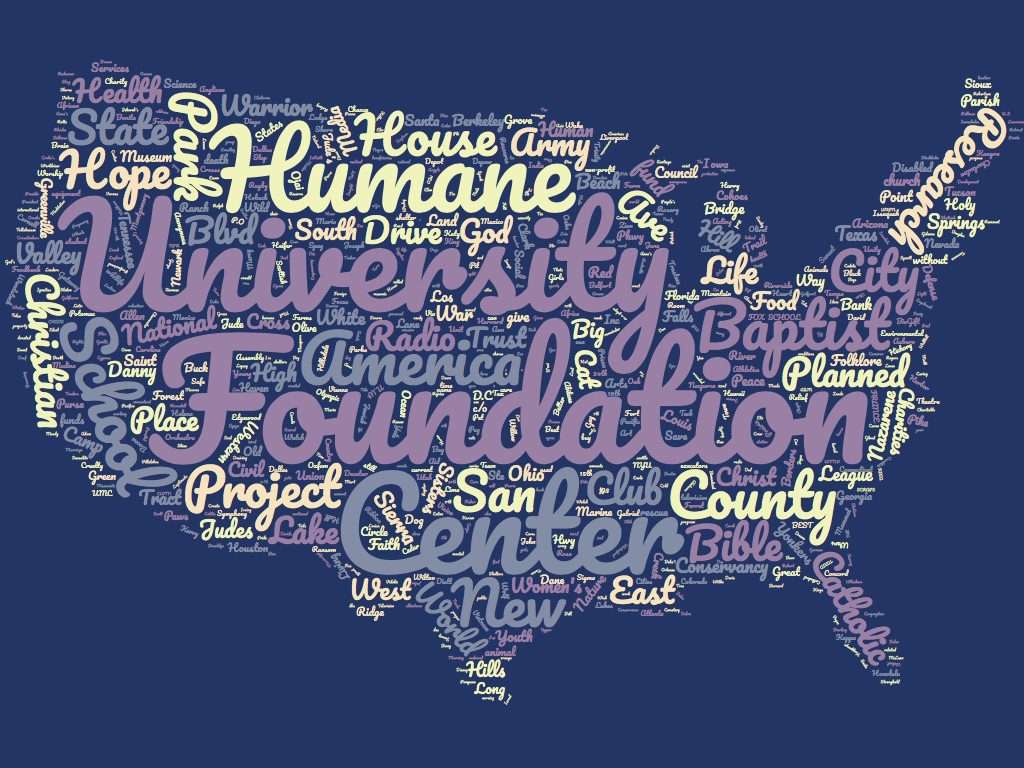“A note on Privacy: the protection and security of the documents created on our web site are of critical importance. In particular, we cannot access any information contained in a specific Will, nor can we read a person’s Will. However, we are able to access aggregated data on planned giving from an encrypted database folder that summarizes the number of times particular choices have been made within our service. We cannot connect this information to individual accounts. It is this data that has been mined to provide the information in this post”
Background to our study
At USlegalWills.com, we help thousands of Americans create their Last Will and Testament. A Will contains a lot of important information, such as who will be the guardians of your children and who will receive your house after you pass on, and it can also serve as a great way to give back to the community upon your death. Leaving money or assets to a charity is called “planned giving,” which USlegalWills.com offers for all its Wills. According to the National Center for Charitable Statistics, in 2015, individual giving, which makes up the vast majority of contributions received by non-profit organizations, “amounted to $258.51 billion in 2014, an increase of 7.1 percent in current dollars from 2013.” Ever since the Great Recession in 2008, “individual giving has been increasing in both current and inflation-adjusted dollars for the last couple years, although it has not recovered to pre-recession levels.”

Actual word cloud from bequests made at USLegalWills.com
With this charitable giving trend on the rise, we were interested in the level of “planned giving” going on in the United States. According to Russell James, the number of people aged 55+ with a charitable estate beneficiary hovers between 5% an 6%.
Continue reading →